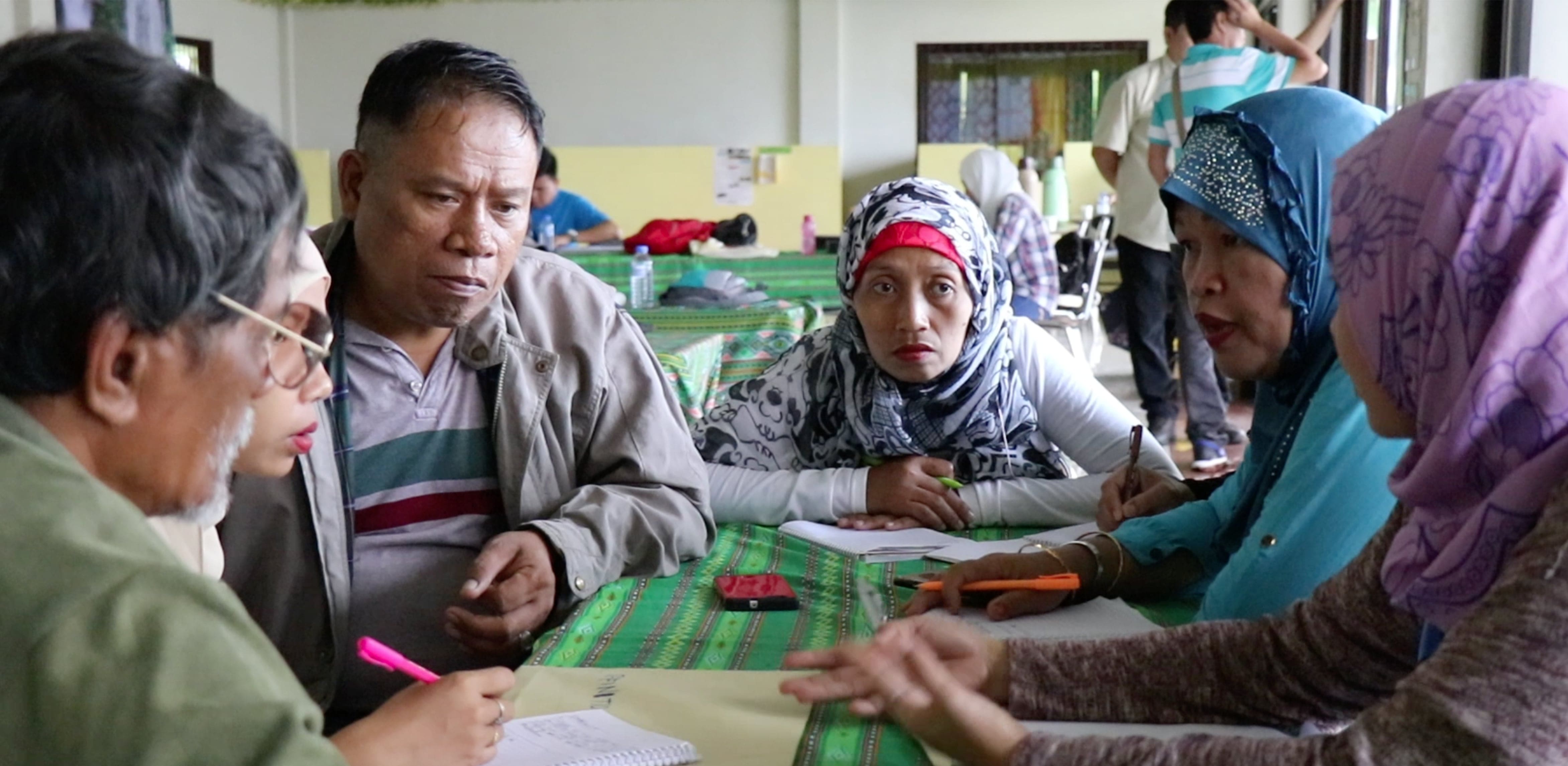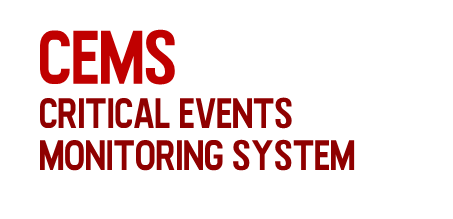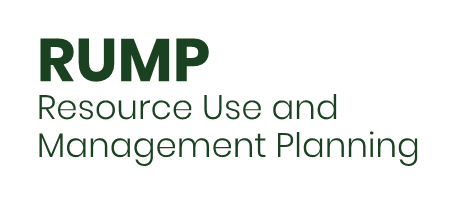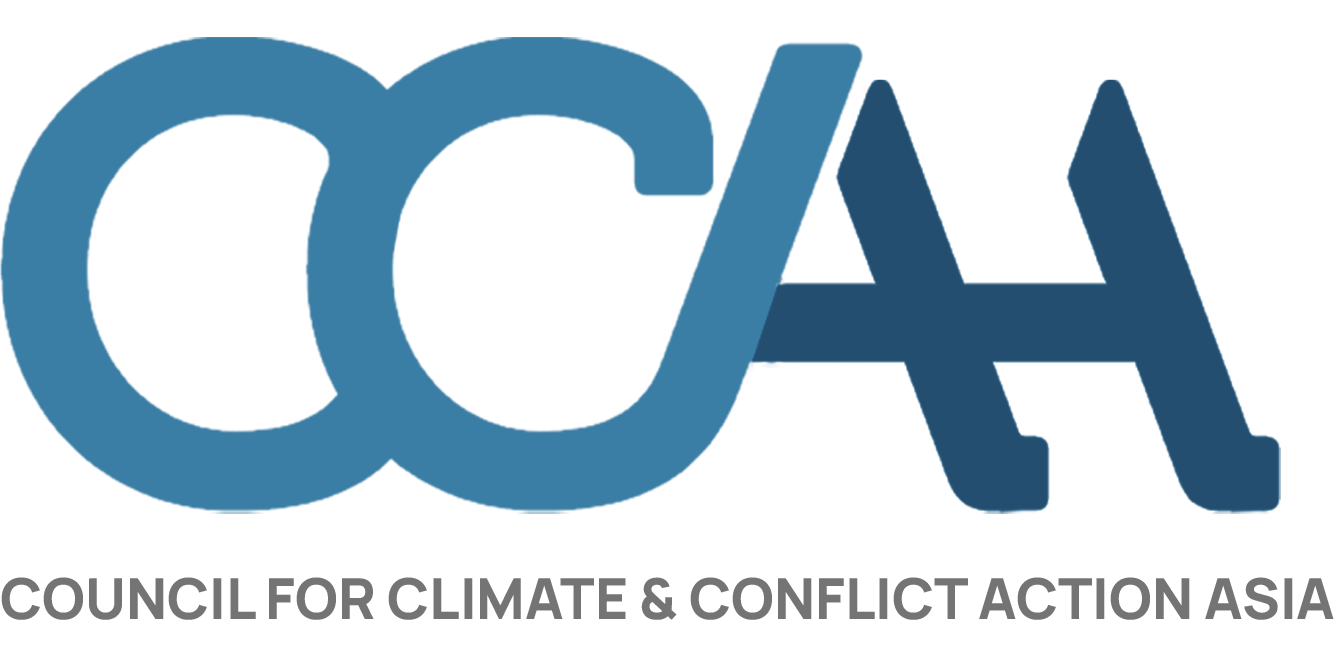Council for Climate and
Conflict Action Asia (CCAA)
Council for Climate and Conflict Action Asia (CCAA), also known as Climate Conflict Action is an independent non-governmental organization dedicated to promoting sustainable and lasting peace by addressing the interconnected challenges of climate and conflict.
We provide granular conflict data and interoperable tools, generating insightful reports on communities impacted by climate and conflict risks. Together with local communities, we monitor, analyze, and understand the dynamics of conflict, peace, and development in the Philippines to inspire action and solutions.
Our work builds upon the legacy of our former identity as International Alert Philippines. Many of the materials and publications on this website were under that name. Today, we continue to expand our repository of knowledge as Climate Conflict Action, focusing on the crucial intersection of climate and conflict risks.

CCAA Interoperable
Platforms
CCAA manages the interoperable platforms developed as International Alert Philippines. The data captured and processed in these platforms are secondary data and their use is governed by Philippine laws and polices.

Conflict Alert is the country’s sole conflict monitoring system that tracks incidence, causes, and human costs of violent conflict in the BARMM region, from the province to the village level.
It aims to shape policymaking, development strategies, and peacebuilding approaches by providing relevant, robust, and reliable conflict data.

CEMS is an SMS-based reporting system that captures conflict incidents and tensions in communities that may lead to the eruption of violence.
It is used by Early Response Network (ERN) in various localities in the Bangsamoro who share real-time information and work with key stakeholders in coordinating quick context-specific responses.

The RUMP is a tool and process for identifying resources, mapping claims and conflict timelines. It articulates the people’s authentic voice and vision for the development of their communities and develop approaches for participatory, inclusive, and conflict-sensitive resource use and advocacy.
Broader scope, rooted mission
Since 2011, International Alert Philippines stood at the forefront of peacebuilding efforts, playing a key role in conflict monitoring, analysis and early response on enduring and emerging causes of violence in the country's most volatile areas. Through its Conflict Alert system, the organization tracks the incidence, causes, and human costs of violence. As part of the global International Alert network, the organization was instrumental in addressing the multifaceted nature of conflict in the Philippines, from those involving rebellion and community-level tensions to issues rooted in socio-economic disparities, political strife, and identity dynamics. Through our work, International Alert Philippines earned a strong reputation for its deep understanding of local dynamics and its ability to bring together communities, government agencies, and civil society in forging pathways for lasting peace.The biggest development and peace building threat of the coming decades will be addressing collective violence driven by extremism, enduring conflict dynamics, and the intersection of conflict and climate risks. Climate-induced violence is emerging in the struggle over vital natural resources and displacement due to natural calamities. With its vulnerability to environmental disasters and a history of conflict, the Philippines has become a focal point for understanding how environmental stressors can exacerbate existing tensions and fuel conflict. International Alert Philippines recognized that peacebuilding approaches must evolve to tackle the emerging realities of our time.
Climate Conflict Action took off in the second half of 2023 with a mission to explore the links between conflict and climate risks. To address the urgency of solving the dual challenges of climate change and conflict, International Alert Philippines underwent a significant transformation. The organization established itself as Climate Conflict Action, a fully local organization with a name that reflects its renewed focus on the nexus of climate and conflict to achieve lasting peace. This transition represents not just a change in name, but a deepening of the organization's commitment to pioneering solutions at the intersection of climate and conflict.
Building on the legacy of its former name, Climate Conflict Action is dedicated to strengthening evidence-based conflict monitoring by integrating a climate perspective, while continuing its efforts in early response, restorative justice, and land and resource use management. The organization leverages its years of experience in conflict monitoring and data analysis to illuminate the underlying factors driving both climate vulnerability and conflict dynamics.
Climate Conflict Action will continue to engage with local communities, government agencies, and international partners. By providing accurate and actionable insights, the organization aims to inform interventions and strategies that create concrete solutions, spark meaningful dialogues, and transform data to action.
